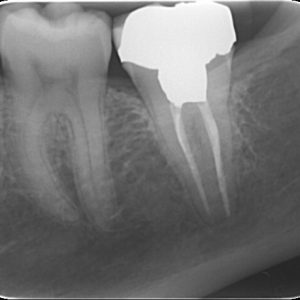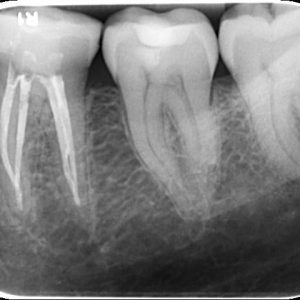Endodontic Treatment
Root Canal Treatment
Root Canal complications
As with any dental procedure, there can be complications. These include:
- Failure of integration, where the titanium and bone don’t blend properly
- Failure of the implant crown – internal screws can loosen and break
- Gum disease around the implant – this can happen in the same way it can happen to teeth.
- If canals, calcification or anatomy compromise treatment, referral to a specialist may be required
- Failure of the root canal treatment for reasons such as invisible cracks, resistant bacteria or abnormal anatomy. If the risk of complications is high, or if there is difficulty in accessing the canals, or perforation of the root or bifurcation of roots occur, a specialist referral or extraction of the tooth may be required.
- Special fine files are used in the procedure which can occasionally fracture during the treatment. A specialist referral may be required in this case.
- Flare up pain or sensitivity following the procedure.
- Hypochlorite/bleach burn due to irrigation of the canals.
- Loss of temporary filling material in between appointments.
- Reinfection may occur months or years after the tooth has been treated, usually due to further decay, trauma or cracked tooth/filling that has allowed bacteria to re-enter the tooth. A specialist referral may be required for re-treatment or tooth may need to be extracted.
- Discolouration of tooth, this may be addressed with bleaching or coverage of the tooth with direct/indirect materials.
- Uncomfortable or strange feeling- this may occur because the tooth no longer has a pulp or due to the cleaning procedure. Most patients become accustomed to this over time.
- Fracture of tooth upon completion especially for the molars (back teeth), so usually a full coverage restoration to protect the tooth is recommended- either with a directly placed overlay or a crown.
There are some patients who are not good candidates for implants, but for most people they are the restoration of choice when a tooth is missing.


